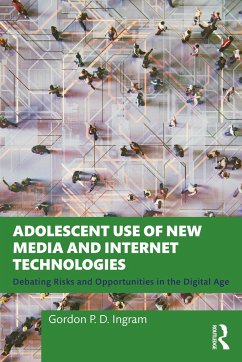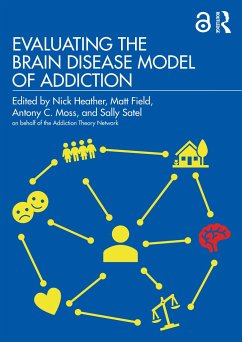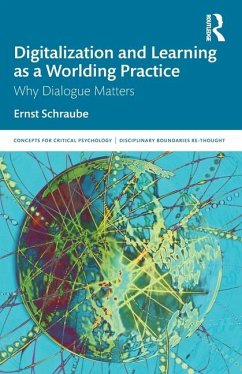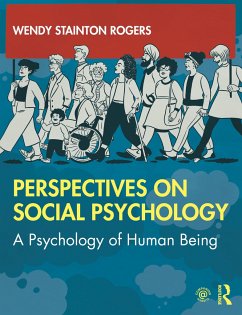
Internet Addiction
A Critical Psychology of Users
Versandkostenfrei!
Versandfertig in 6-10 Tagen
42,99 €
inkl. MwSt.
Weitere Ausgaben:

PAYBACK Punkte
21 °P sammeln!
This essential book questions the psychological construct of Internet Addiction by contextualizing it within the digital technological era. It proposes a critical psychology that investigates user subjectivity as a function of capitalism and imperialism, arguing against punitive models of digital excesses and critiquing the political economy of the Internet affecting all users.Friedman explores the limitations of individual-centered remediations exemplified in the psychology of internet addiction. Furthermore, Friedman outlines the self-creative actions of social media users, and the data proc...
This essential book questions the psychological construct of Internet Addiction by contextualizing it within the digital technological era. It proposes a critical psychology that investigates user subjectivity as a function of capitalism and imperialism, arguing against punitive models of digital excesses and critiquing the political economy of the Internet affecting all users.
Friedman explores the limitations of individual-centered remediations exemplified in the psychology of internet addiction. Furthermore, Friedman outlines the self-creative actions of social media users, and the data processing that exploits them to urge psychologists to politicize rather than pathologize the effects of excessive net use. The book develops a notion of capitalist imperialism of the social web and studies this using the radical methods of philosopher Gilles Deleuze and psychoanalyst Félix Guattari.
By synthesizing perspectives on digital life from sociology, economics, digital media theory, and technology studies for psychologists, this book will be of interest to academics and students in these areas, as well as psychologists and counselors interested in addressing Internet Addiction as a collective, societal ill.
Friedman explores the limitations of individual-centered remediations exemplified in the psychology of internet addiction. Furthermore, Friedman outlines the self-creative actions of social media users, and the data processing that exploits them to urge psychologists to politicize rather than pathologize the effects of excessive net use. The book develops a notion of capitalist imperialism of the social web and studies this using the radical methods of philosopher Gilles Deleuze and psychoanalyst Félix Guattari.
By synthesizing perspectives on digital life from sociology, economics, digital media theory, and technology studies for psychologists, this book will be of interest to academics and students in these areas, as well as psychologists and counselors interested in addressing Internet Addiction as a collective, societal ill.














